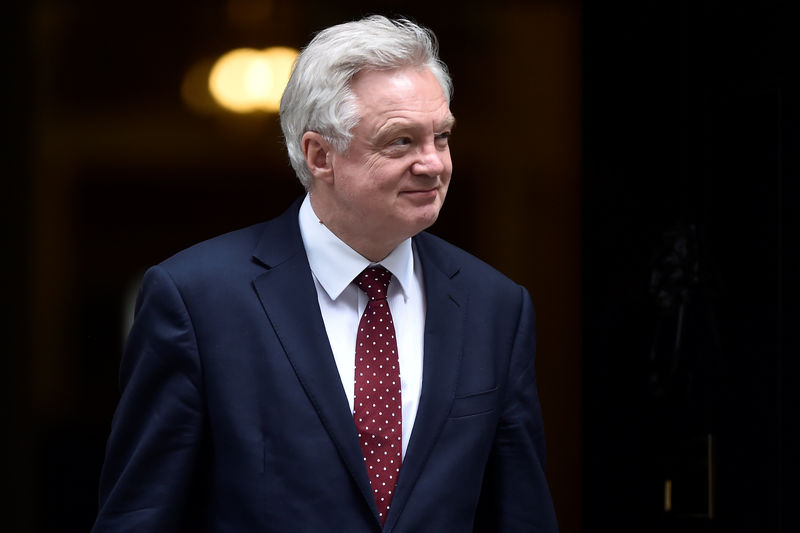LONDON (Reuters) - A meeting on Friday designed to rebuild bridges between Britain's government and corporate leaders over the country's departure from the European Union was "a good first step," people who attended said.
Business leaders have said their concerns about Brexit were not being heard until recently when the debate about how to leave the EU was blown open again by British Prime Minister Theresa May's loss of her parliamentary majority last month.
"It's clear ministers are listening to business concerns, which we welcome," Terry Scuoler, chief executive of EEF, a group representing manufacturers, said.
"We had an open and frank discussion and we’ve started a process where we will work together to obtain as much clarity and certainty as possible for industry as we prepare to leave the EU," he said.
Another industry group, the Federation of Small Businesses, said the government seemed committed to a pro-business Brexit. "I was heartened by the recognition of the benefits of free trade, and a clear moral drive that our future success will rest upon it," Martin McTague, FSB policy director, said.
Employers are pushing for a Brexit deal that causes as little disruption as possible for them, including a transition period between Britain's planned departure from the bloc in 2019 and the start of its new relationship with the EU.
Several people who took part in Friday's meeting - held at a country home which serves as an official residence of government ministers - declined to comment on the details of the discussions, saying they were intended to remain private.
Separately on Friday, British finance minister Philip Hammond ruled out a proposal by a leading employers group that the country should stay in the EU's single market and customs union during a transition period.
"My preference is that we negotiate a transitional structure," Hammond said on the sidelines of a Group of 20 leader summit in Hamburg.

This would take Britain "outside of those memberships (the single market and customs union)" but during a transition would replicate "as much as possible of the existing arrangements so the shock to business is minimized for the transition period."